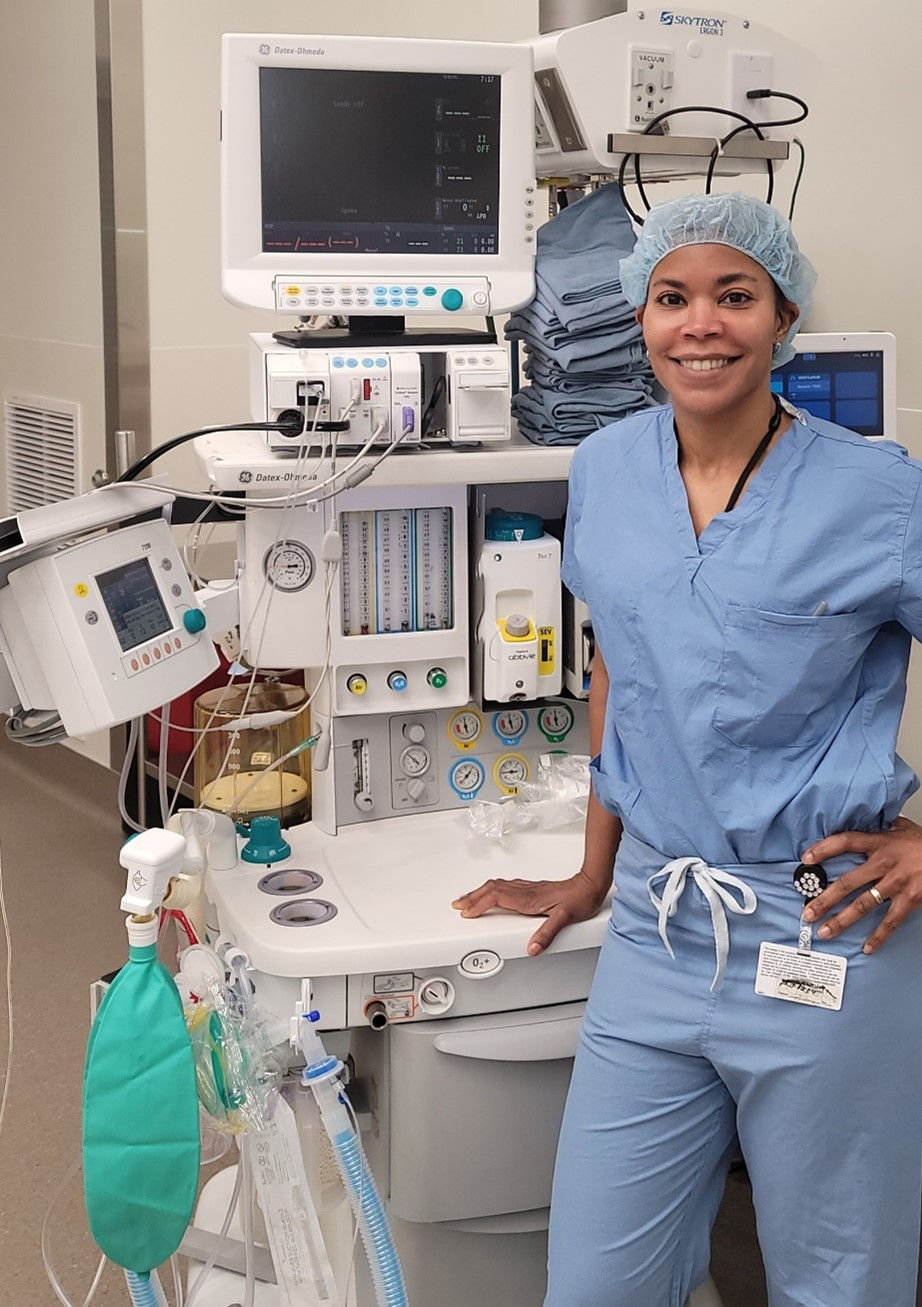Dawn Bent, DNP, MSN, CRNA, didn’t choose to be a nurse anesthetist as much as the profession chose her.
She was working as an ICU nurse for eight years when one of the anesthesiologists that she worked with told her: “I think you would be a great nurse anesthetist.” She didn’t know what that was, and so he took her over to the operating room and let her see the profession in action. She still wasn’t convinced, but she didn’t forget. About a year or two later, she explored the profession again and decided to pursue the career path.
“I don’t know if I ever told him, but to this day I thank Dr. Stayer for introducing me to the profession,” said Bent, who works at the University of Pennsylvania and St. Christopher’s Hospital for Children.

Today, Bent is a program director, a role she takes seriously for a number of reasons.
“There are so many challenges from an educational standpoint,” Bent says. “It is even more challenging as a director of color. I say that because we have such a diverse cohort of students on every level that giving them exactly what they ‘need and want’ can pose difficulty.
"I want to be an example to every student regardless of their background, but I know that students of color look up to me in a very different way. I want to make sure that I am being a great example to all of my students.”
Some of the students featured during PANA’s Black History Month commemoration have named Bent as their mentor. And, Bent has her own list of mentors, too. “It’s almost like, 'where do I begin here,'” she says.
The late Art Zwerling touched her education and clinical life so deeply. He was one of the best in the OR and she wanted to follow his lead at all times. She also can’t say enough for Maria Van Pelt (nee Magro), who is not only her friend but definitely always a text or phone call away. “She is so graceful in her approach and has the best poker face out there.” Bent says she learned so much from her.
With all this support, Bent’s greatest achievement thus far is her program director role and working with her associate director. This was not a role that she sought out and she was not even sure she would do it any justice, but they put together not only a team between the two of them, but also with their students and program administrator.

“The value of partnering with our students gives me such hope that in the future they will look at students as their partners so we can actively break the cycle of needing our students to be resilient,” Bent says. “Anesthesia education requires resiliency, but it also needs an environment of gentleness and tolerance to a degree. We were all students at one point.”
As a first generation Jamaican American, Bent’s family always stressed the importance of hard work, but she also recognizes that some from diverse backgrounds may work hard but are still not afforded opportunities. Her focus is continuing to be the face of hard work, mentorship and caring. There are a lot of talented Black Americans out there and some just need the platform in order to shine, she says.
As for what’s next? Bent hopes to continue to make a difference in the lives of students and grow the profession. Being a program director of color, she understands that students from diverse backgrounds — all of them — need an advocate and a mentor.
“I have had students reach out to me that do not go to my program and ask me lots of questions and ask me to mentor them,” she says. “I can’t help but say yes because there were people who invested in me when they really didn’t have to. Giving back means a lot. Working in partnerships with others who have the same heart for students is what I am looking to do.”














